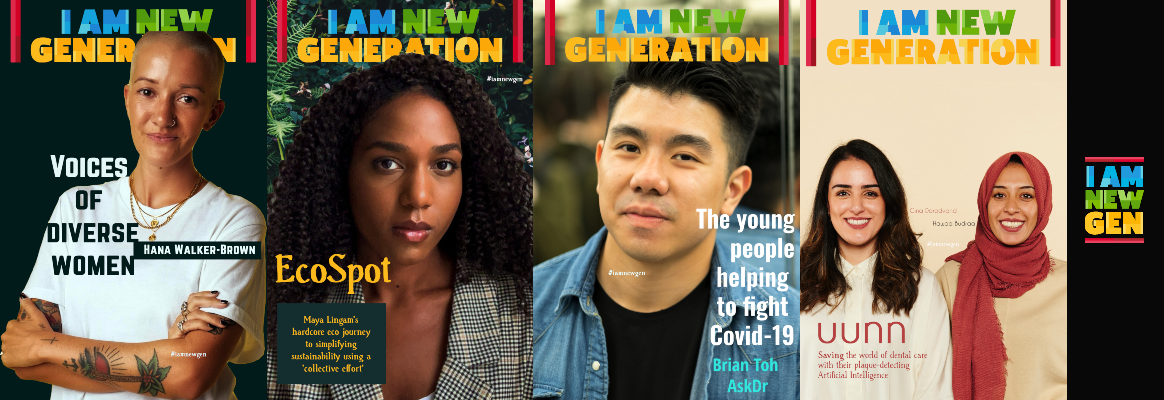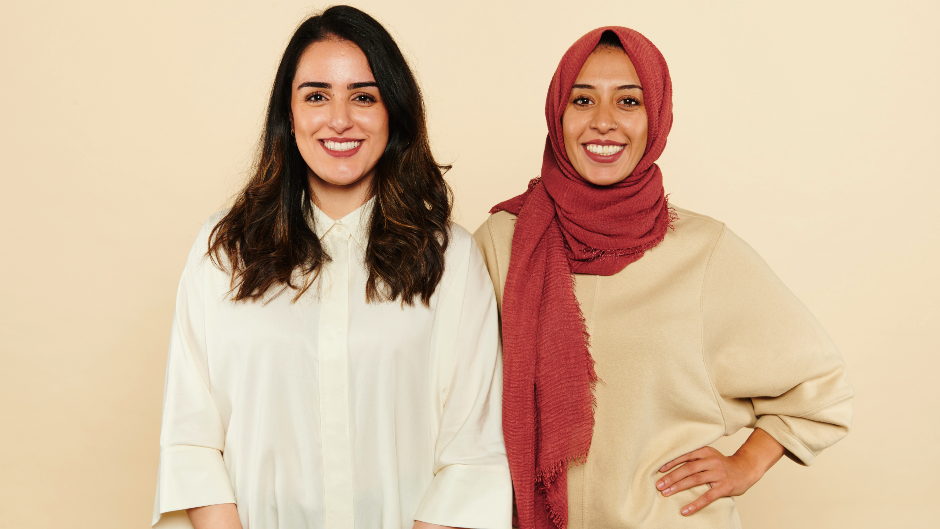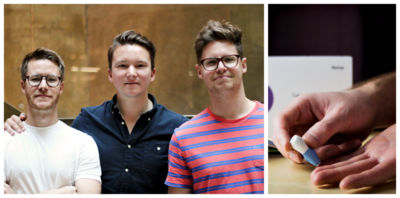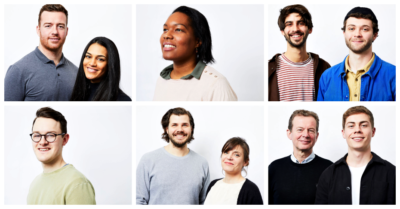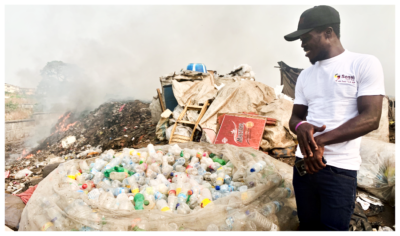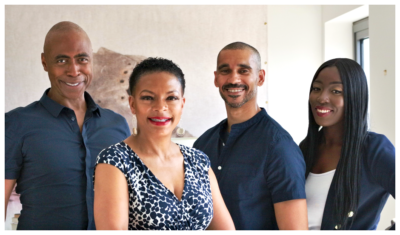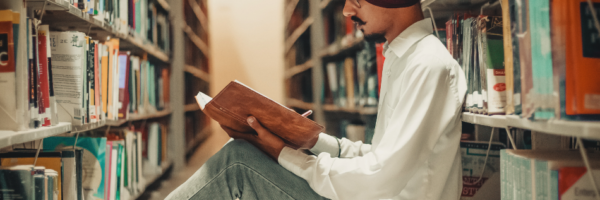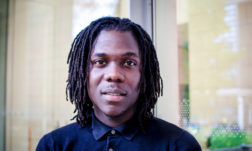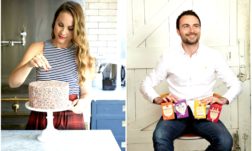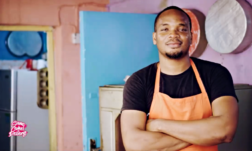The height of the coronavirus pandemic forced dental practices across the world to shut down and it changed how dentistry is being delivered to people. This shift, however, has placed the founders of uunn – Gina Dorodvand and Hawaa Budraa – as the first to create and use artificial intelligence (AI) to detect plaque on teeth, from home.
Made up of a mobile app and a recyclable lens that slides over your phone camera, uunn allows you to measure how clean your teeth are – without leaving your home to visit the dentist.
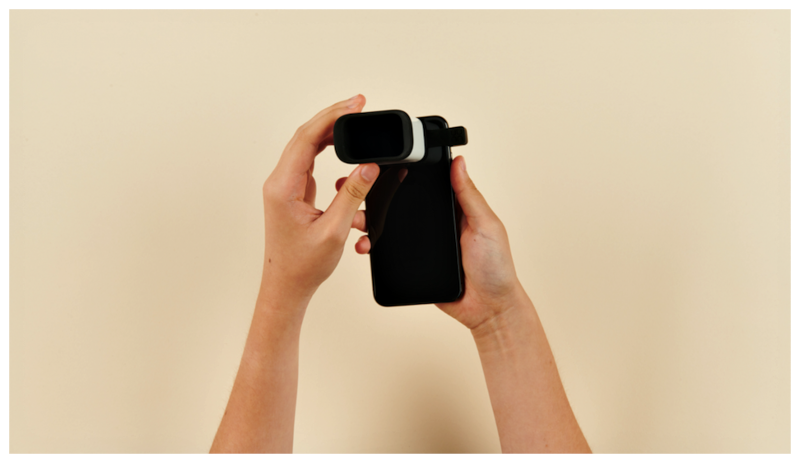
The uunn app scans your teeth by taking a series of photos, before using machine learning to analyse and detect any areas of plaque that need removal using a toothbrush.
The co-founders, who met in their final year at university while studying Biomedical Engineering [graduating in 2015], say they want “to change the collective mindset of teeth-care from being a chore to becoming something you want and enjoy to do”, and “to make dental care accessible, affordable and meaningful.”
The link between AI and the need for a home-based dental-care?
Dorodvand: Inspiration for building uunn came from Hawaa’s sister who was rejected from having braces because the level of plaque on her teeth was too high.
She was told to sort it out and come back once her plaque levels had reduced.
However, when she was away from the dentist, she couldn’t track the plaque on her teeth or know whether it was low enough to be considered clean. But, Hawaa’s sister is not alone, there is currently no way to measure how clean our teeth are unless we visit a dentist.
As Biomedical Engineers, we were exposed to the power of artificial intelligence (AI) during our degree.
So, when Hawaa was working on her final year project at university, she decided to explore whether it was possible to use AI to find plaque on photos of teeth, which she proved to be possible.
Handling the long-term process of developing uunn’s technology?
Dorodvand: Since we’ve been working on this for five years now, the most challenging part was the fact that we’re building something that hasn’t existed before. The list of challenges that comes with this is endless.
Some of them being changing mindsets when it comes to teeth-care as it’s always something that’s been seen as a chore, a necessary evil or it’s been shrouded in fear and anxiety, so the uunn brand was essential to get right.
It was also hard for people to understand how this product works or what it can do for them since it is so new and this required many different iterations of communication until we got this point.
Another challenge was the technical aspect as we’re analysing peoples teeth using just photos taken from a phone camera.
Since there are so many different mobile cameras, this meant that we had to do a lot of R&D not only to be able to detect plaque using these photos but to be able to do it across a range of different phones.
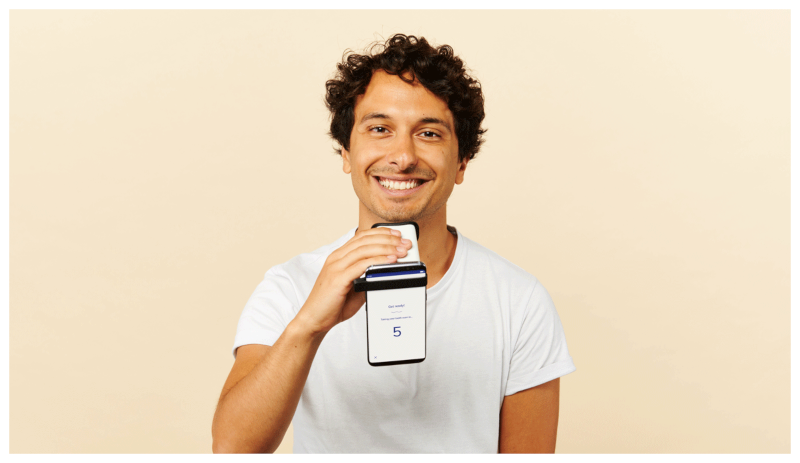
How does uunn’s algorithm work?
Dorodvand: All you have to do is slide the uunn lens over your phone camera, take three photos of your teeth (we call this a Teeth Scan) using the uunn app and wait a few minutes whilst the algorithm analyses your teeth.
You will then be told whether your plaque level is low enough (under 1%), this is called ‘The Zone’ and you will also be shown precisely where any missed areas of plaque are on your teeth so you can go back with your toothbrush and remove it.
The algorithm uses image processing and machine learning to be able to detect any areas of plaque on your teeth.
Where are you getting your data from and what happens to the scanned images?
Dorodvand: To train our plaque-detecting innovation, we recruited people as part of our R&D and took photos of their teeth so that we could analyse their plaque and use the learnings to enhance our algorithm, to get it to where it is today.
We place great importance on protecting your privacy so your data will remain yours, but if a user wants to improve uunn by sharing their plaque data, then they can opt to do so anonymously and securely.
uunn’s unique role in the new world of dental care after the pandemic?
Dorodvand: In the UK, dental practices closed in March [2020]. Some closed down entirely while others only took emergency visits and hence they were no longer providing routine appointments (check-ups and cleans) due to the outbreak.
Dentists, dental hygienists and dental therapists were concerned about their patients, and a lot of them were on the phone with their patients, to tell them how they could take care of any teeth by themselves at home.
It became apparent very quickly to many of us, how important and impactful our at-home oral care is.
It took Corona, to wake a lot of people up to the fact that when we are away from the dentist, we have no way of knowing how our teeth are doing.
In the UK, we’re recommended to visit the dentist every six months which means that for the other 363 days, we’re not sure if our teeth are actually clean and we don’t know whether our plaque levels are low enough, to avoid painful and expensive problems.
That’s why we created uunn, so people could detect plaque using just photos taken from a phone but to be able to do it across a range of different phone cameras.
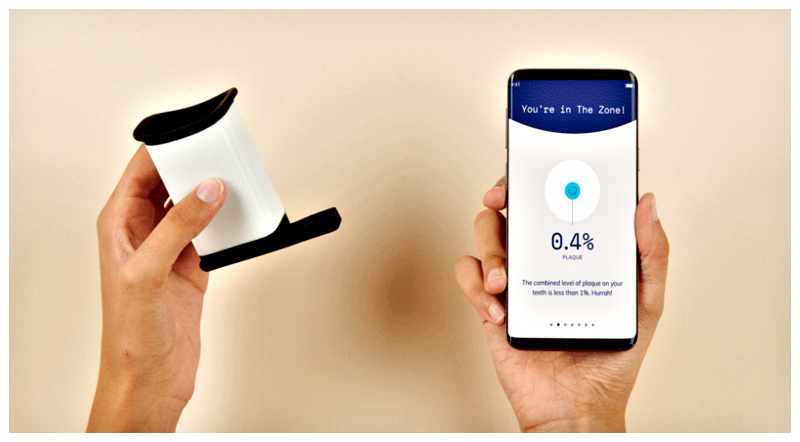
The impact of Covid-19 on the initial plan to raise funding in March 2020?
Dorodvand: Earlier this year, we were gearing up to raise investment so that we could use the funds to release uunn by the summer of 2020, but the pandemic hit and this plan came to a sudden halt as the investment space became a Sahara.
We did whatever we could to keep the company afloat financially, and instead, we shifted our time to engage with our community through Instagram and emails, and we loved it.
We grew our following by being more in touch with the dental expert community on Instagram. We decided to create teeth-care related blogs for our community to read until the world was in a better place, for us to begin raising funds again to continue our development to get uunn into peoples hands, which is where we are at now.
Thinking sustainability in every invention, especially for the uunn lens?
Dorodvand: We take full responsibility for doing our part for the planet. That’s why we designed the uunn lens to last as long as possible.
And, we also put a plan in place for when it does come to the end of its life – we’re offering free postage back to us because it’s our responsibility to make sure that the plastic we produced, is recycled responsibly.
In terms of reusability and recyclability, we don’t believe in waste. So if you see a teeny spec or micro dent in your uunn lens, it’s because we will be reusing every by-product that comes from manufacturing, to create more uunn lenses.
And, if it can’t be re-used, we’ll make sure it’s recycled responsibly.
The future of your artificial intelligence within the healthcare sector?
Dorodvand: Artificial intelligence has been applied to so many areas of our lives, and it’s just starting to enter the world of teeth-care, with our technology being at the forefront of this wave of innovation that’s yet to come.
Specifically for uunn, the future is exciting. Once uunn becomes part of people’s everyday dental routine, the aim is to use the technology to help people further.
Plaque data saved on the app could be shared with their dentist before their appointment, meaning personalised visits and their plaque data can be used to influence their electric toothbrush settings, to allow for a more personalised brushing experience.
Plaque is just the beginning of the features for uunn as we have other features lined up such as being able to detect the shade of your teeth, how straight your teeth are as well know whether your gums are looking healthy.
uunn has been and will continue to be shaped by users, to be something that they find valuable, which is why we’re excited to get uunn into your hands by the end of this year.
For our readers only – Pre-order your own uunn via Kickstarter and pick the package called IAMNEWGEN20 to get 30% off.
Images Copyright – Onaria Technologies (uunn) / edited by I Am New Generation Magazine
More Stories
Share Your Start-Up Story – Thriva
The next generation inventors ‘creating’ to fix our health and the planet
